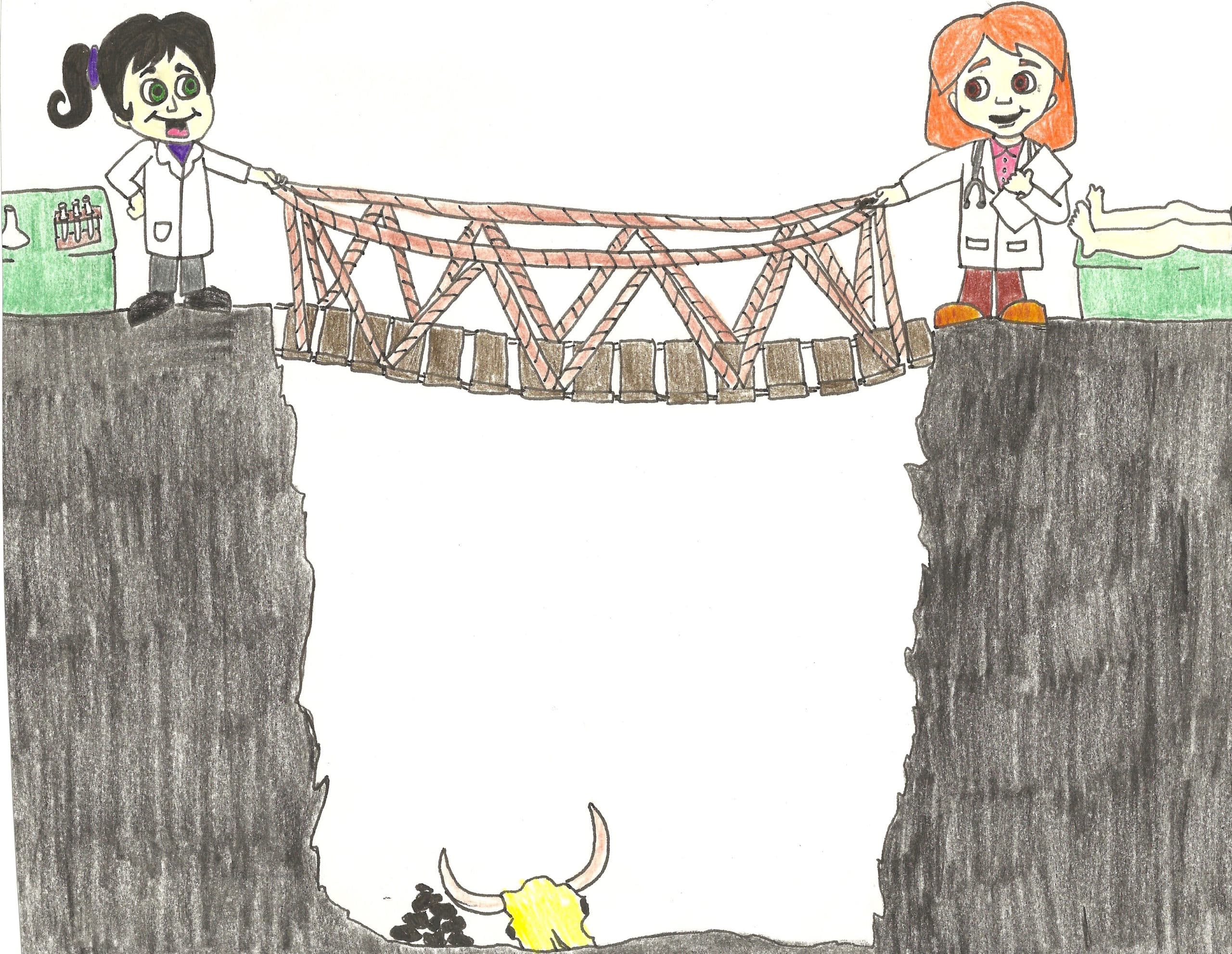I am so excited and honored to partner with the Bateman Horne Center to establish a world-class research program that will bring science-based medicine to ME/CFS patients. Over the coming weeks I will provide you with the details of “Who’s Who” that will make up the Bateman Horne Center of Excellence and what each person will be doing to strategically and durably construct the perfect bridge to science-based ME/CFS medicine. First let me provide a bit of background.
Imagine an image depicting a scientist contemplating a dilapidated bridge that spanned a deep, skeleton-laden gap to the doctor and patient on the other side highlighted the chasm that exists between scientific discovery and the patients that need these discoveries. (Click here to view this image and read the full article.) The explosion of molecular biology in the 1970s was cited as a possible cause of the chasm between the laboratory bench and diagnosis and treatment for patients. There are many more reasons for the chasm including a culture and mentality that rewards impact factors (this is a measure of how many times a scientific paper is cited by peers) and grant size rather than tangible and meaningful help for patients. But this important article underscored the need and framed approaches for reform.

Within a year as scientific director I formed the first ME/CFS research network and 2 of the 6 two scientists were new to ME/CFS research. By 2015 I recruited 10 of some of the brightest scientist from the best medical and academic institutions to conduct ME/CFS research! The naysayers were wrong: scientists will go where there is a complex problem and opportunity for discovery. Several of the scientists I’ve introduced to ME/CFS research are hooked and have published interesting papers in high impact journals. Some have applied for bigger funding from the National Institutes of Health (NIH) and some have received bigger funding and are generating great data in their laboratories. I will continue to collaborate with these rock star scientists at the Bateman Horne Center, and it is this collaborative development that will bridge the chasm.
Together with Dr. Lucinda (Cindy) Bateman, the remarkable team at the Bateman Horne Center, partners from the private sector, collaborators from the Jackson Institute of Genomic Medicine and Columbia University (to name a few!) we will build the perfect bridge for ME/CFS – a bridge that accelerates research discoveries into meaningful patient-centered, science-based medicine.

 Lucinda Bateman, MD, is a renowned clinician, researcher, and educator. Her Johns Hopkins University Medical School training instilled an approach to care that she has employed throughout her career - the patient comes first and the unknown or unexplained does not equate to a lack of proper and compassionate care. Since starting her own practice in 2000, she has served on six boards or committees, been the principal investigator for 45 studies, authored/coauthored 40 journal articles, served as adjunct instructor and adjunct assistant professor in the University of Utah Departments of Preventative Medicine, Internal Medicine, and Anesthesiology, and lectured around the world.
Lucinda Bateman, MD, is a renowned clinician, researcher, and educator. Her Johns Hopkins University Medical School training instilled an approach to care that she has employed throughout her career - the patient comes first and the unknown or unexplained does not equate to a lack of proper and compassionate care. Since starting her own practice in 2000, she has served on six boards or committees, been the principal investigator for 45 studies, authored/coauthored 40 journal articles, served as adjunct instructor and adjunct assistant professor in the University of Utah Departments of Preventative Medicine, Internal Medicine, and Anesthesiology, and lectured around the world.